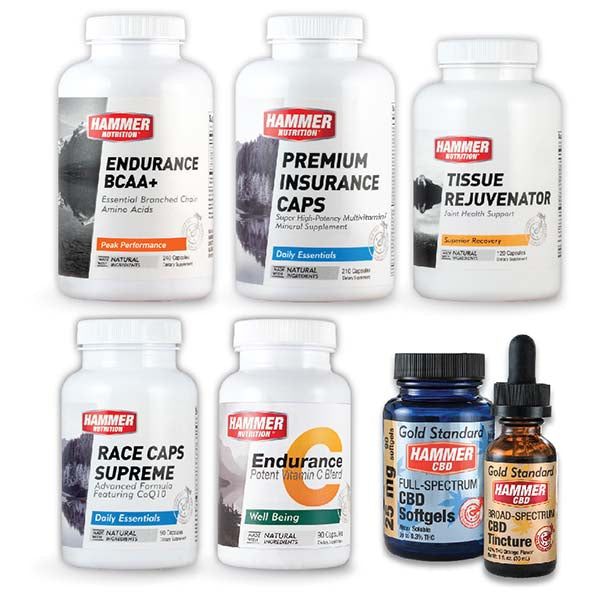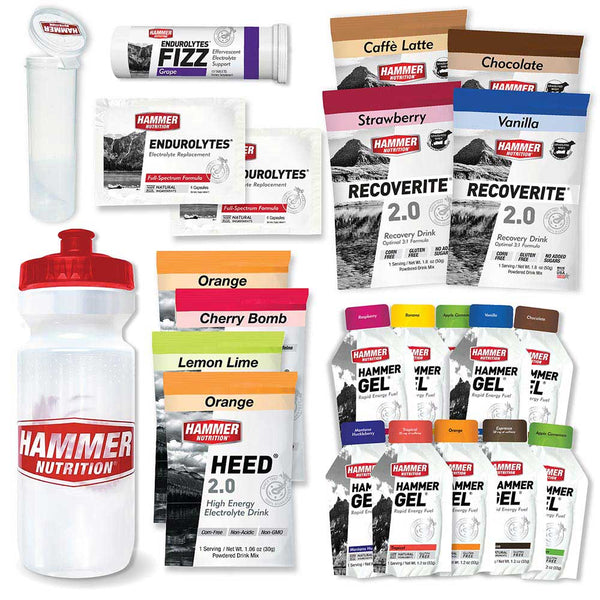
BY STEVE BORN
Osteoarthritis, the most common form of arthritis, is a degenerative joint disease that affects over 32 million adults in the U.S. and more than 500 million people worldwide. For those afflicted with the disease—which occurs most frequently in the hands, hips, and knees—the cartilage that cushions the joint gradually wears away. Painful inflammation and swelling accompany this condition.
There is no cure for osteoarthritis, so those afflicted with this disease strive to relieve these issues. Unfortunately, the "treatment of choice" is often over-the-counter NSAID (non-steroidal anti-inflammatory drug) medications. Recent research has shown that this unwise strategy will exacerbate the issue rather than help correct it. A study headed up by Dr. Johanna Luitjens of the Department of Radiology and Biomedical Imaging at the University of California, San Francisco, concluded:
- Long-term NSAID use for osteoarthritis of the knee may worsen the inflammation of the joint.
- Joint inflammation and cartilage quality were worse at baseline in the participants taking NSAIDs, compared to the control group, and worsened at four-year follow-up.
Over 1,000 subjects with moderate to severe osteoarthritis of the knee were involved in this study. Approximately 25% received NSAIDs continuously for over a year, while the remaining participants did not receive any. Additionally, each participant completed a knee MRI at the beginning of the study and again four years later.
The study focused on synovitis, the inflammation of the joint's membrane lining, and how NSAIDs may affect it. Dr. Luitjens states, “Synovitis mediates development and progression of osteoarthritis and may be a therapeutic target. Therefore, the goal of our study was to analyze whether NSAID treatment influences the development or progression of synovitis and to investigate whether cartilage imaging biomarkers, which reflect changes in osteoarthritis, are impacted by NSAID treatment.”
In their assessment of several MRI biomarkers of synovitis at the end of the four-year study, the researchers noted no long-term benefits from using NSAIDs. Compared to those not taking NSAIDs, markers of joint inflammation were worse in the NSAID group.
Though this study is preliminary and not yet peer-reviewed and published in a journal, it would appear to cast a dark shadow on the use of NSAIDs as a treatment for osteoarthritis. Dr. Luitjens states, "The use of NSAIDs for their anti-inflammatory function has been frequently propagated in patients with osteoarthritis in recent years and should be revisited since a positive impact on joint inflammation could not be demonstrated."
Hammer Nutrition supplements to help protect against osteoarthritis
and provide effective relief for aches and soreness
Tissue Rejuvenator contains many nutrients—headed up by glucosamine sulfate, chondroitin sulfate, MSM, and Undenatured Type II Collagen—that provide the “raw materials” cartilage requires to maintain structural integrity, strength, and flexibility. These same nutrients and other nutrients in this comprehensive product provide effective relief from aches, soreness, and swelling.
Hammer CBD. The broad spectrum of cannabinoids in Hammer CBD—headed up by cannabidiol (CBD)—influences and activates the CB2 receptors in the body’s endocannabinoid system. Activation of these receptors dramatically assists in significantly reducing aches and soreness. CBD also influences several non-cannabinoid receptor systems in the brain, which play a role in the regulation of aches and soreness.
EndurOmega contains omega-3 fatty acids that, in addition to their numerous benefits, have excellent properties that help alleviate aches and soreness.
Both vitamin D3 and vitamin K2 in EnDuro D support cartilage health.
- “Vitamin D intake is inversely associated with cartilage degeneration among patients with osteoarthritis (OA), and supplementation may have a protective effect, suggests an analysis of data from the Osteoarthritis Initiative.” [2]
- "Vitamin K is important for the healthy functioning of proteins in cartilage and bone, two major tissues in joints affected in osteoarthritis. For example, matrix Gla protein (MGP) depends on vitamin K to help prevent cartilage calcification.” [3]
REFERENCES:
[1] https://press.rsna.org/pressrelease/2022_resources/2379/abstract.pdf
[2] https://rheumatology.medicinematters.com/osteoarthritis-/diet-and-nutrition/vitamin-d-has-potential-benefits-for-people-with-osteoarthritis-/16929090
[3] https://blogs.bmj.com/rheumsummaries/2021/04/12/vitamin-k-is-involved-in-osteoarthritis/)








